66 start with N start with N

Polit Dueñas provides a theoretical basis for her methods, citing the work of Walter Benjamin, Pierre Bourdieu, and other cultural analysts. She supplements this with extensive ethnographic fieldwork, interviewing artists and writers, their confidants, relatives, and others, and documents their responses to the portrayal of narco culture. Polit Dueñas offers close readings of the characters, language, and milieu of popular works of literature and the visual arts and relates their ethical and thematic undercurrents to real life experiences. In both regions, there are few individuals who have not been personally affected by the narcotics trade. Each region has witnessed corrupt state, police, and paramilitary actors in league with drug capos. Both have a legacy of murder.
Polit Dueñas documents how narco culture developed at different times historically in the two regions. In Mexico, drugs have been cultivated and trafficked for over a century, while in Colombia the cocaine trade is a relatively recent development. In Culiacán, characters in narco narratives are often modeled after the serrano (highlander), a romanticized historic figure and sometime thief who nobly defied a corrupt state and its laws. In Medellín, the oft-portrayed sicario (assassin) is a recent creation, an individual recruited by drug lords from poverty stricken shantytowns who would have little economic opportunity otherwise. As Polit Dueñas shows, each character occupies a different place in the psyche of the local populace.
Narrating Narcos offers a unique melding of archival and ground-level research combined with textual analysis. Here, the relationship of writer, subject, and audience becomes clearly evident, and our understanding of the cultural bonds of Latin American drug trafficking is greatly enhanced. As such, this book will be an important resource for students and scholars of Latin American literature, history, culture, and contemporary issues.

Selected by Claudia Rankine
Prose poems that profile the interrelationship of the two central characters, looking deeply into their psyches and thoughts of race, class, and identity.

In 1853, when he was forty-nine and at the height of his literary career, Nathaniel Hawthorne accepted the post of U.S. consul at Liverpool, England, as a reward for writing the campaign biography of his college friend President Franklin Pierce. Hawthorne’s departure for Europe marked a turning point in his life. While Our Old Home, shrewd essays on his observations in England, The Marble Faun, a romance set in Italy, and the English Notebooks and French and Italian Notebooks were all results of his European residence, he returned to Concord in 1860 frustrated, depressed, and sick. He died in 1864.
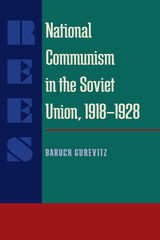
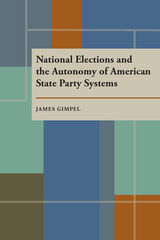
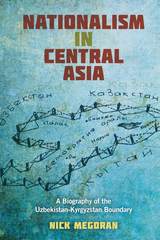
Megoran draws on twenty years of extensive research in the borderlands via interviews, observations, participation, and newspaper analysis. He considers the problems of nationalist discourse versus local vernacular, elite struggles versus borderland solidarities, boundary delimitation versus everyday experience, border control versus resistance, and mass violence in 2010, all of which have exacerbated territorial anxieties. Megoran also revisits theories of causation, such as the loss of Soviet control, poorly defined boundaries, natural resource disputes, and historic ethnic clashes, to show that while these all contribute to heightened tensions, political actors and their agendas have clearly driven territorial aspirations and are the overriding source of conflict. As this compelling case study shows, the boundaries of the The Ferghana Valley put in succinct focus larger global and moral questions of what defines a good border.

For a brief period in the early 1950s, Iranian nationalism captured the world's attention as, under the leadership of Mohammad Mossadeq, the Iranian National Movement tried to liberate Iran from British imperialism. Regarding nationalism as a major determinant of the attitudes and loyalties of those who embrace it, Cottam analyzes the complex religious, national, and social values at work within Iran and examines, more generally, the turbulence of nationalism in developing states and its perplexing problems for American foreign policy.
In a new 40-page chapter, added in 1978, Cottam updated his pioneering study by examining the condition of Iran fifteen years after his first analysis-from its rapid economic growth as an oil producer to Shah Mohammad Reza Pahlavi's unsuccessful efforts to rouse nationalistic sentiment in his favor.
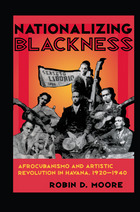
Nationalizing Blackness uses the music of the 1920s and 1930s to examine Cuban society as it begins to embrace Afrocuban culture. Moore examines the public debate over “degenerate Africanisms” associated with comparas or carnival bands; similar controversies associated with son music; the history of blackface theater shows; the rise of afrocubanismo in the context of anti-imperialist nationalism and revolution against Gerardo Machado; the history of cabaret rumba; an overview of poetry, painting, and music inspired by Afrocuban street culture; and reactions of the black Cuban middle classes to afrocubanismo. He has collected numerous illustrations of early twentieth-century performers in Havana, many included in this book.
Nationalizing Blackness represents one of the first politicized studies of twentieth-century culture in Cuba. It demonstrates how music can function as the center of racial and cultural conflict during the formation of a national identity.
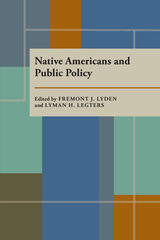
Native Americans, who are recognized simultaneously as sovereign tribal groups and as American citizens, present American society and its policy-making process with a problem fundamentally different from that posed by other ethnic minorities. In these essays, the contributors discuss the historical background, certain pathologies of Indian-white relations, questions of legal sovereignty and economic development, and efforts to find new ways of successfully resolving recent controversies.
Contributors: Gary C. Anders; Russel Lawrence Barsh; Guillermo Bartelt; Duane Champagne; Ward Churchill; Michael J. Evans; M. Annette Jaimes; Anne McCullogh; C. Patrick Morris; Nicholas C. Peroff; Kurt Russo; Dave Somers; Richard W. Stoffle; Ronald L. Trosper; Steven Zubalik; and the editors.
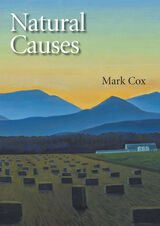
Mark Cox’s youthful bravado has given way in these poems to an assured sense of understatement. The weight of fatherhood, the loss of a grandmother, the fear of loneliness—these are the details around which Cox plumbs the depths of mortality and memory.
Fully comfortable with the domestic tableau from which he writes, this is a poet never complacent. The penchants for metaphor and the resonant turn of phrase that informed Cox’s earlier work remain as vibrant as ever, indeed are heightened, as he masterfully affirms and celebrates the range of familial complexity and human connectedness.
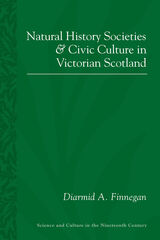
The relationship between science and civil society is essential to our understanding of cultural change during the Victorian era. Science was frequently packaged as an appropriate form of civic culture, inculcating virtues necessary for civic progress. In turn, civic culture was presented as an appropriate context for enabling and supporting scientific progress. Finnegan's study looks at the shifting nature of this process during the nineteenth century, using Scotland as the focus for his argument. Considerations of class, religion and gender are explored, illuminating changing social identities as public interest in science was allowed—even encouraged—beyond the environs of universities and elite metropolitan societies.

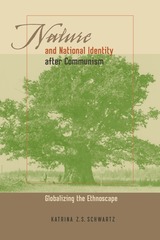
In this groundbreaking book, Katrina Schwartz examines the intersection of environmental politics, globalization, and national identity in a small East European country: modern-day Latvia. Based on extensive ethnographic research and lively discourse analysis, it explores that country’s post-Soviet responses to European assistance and political pressure in nature management, biodiversity conservation, and rural development. These responses were shaped by hotly contested notions of national identity articulated as contrasting visions of the “ideal” rural landscape.
The players in this story include Latvian farmers and other traditional rural dwellers, environmental advocates, and professionals with divided attitudes toward new European approaches to sustainable development. An entrenched set of forestry and land management practices, with roots in the Soviet and pre-Soviet eras, confront growing international pressures on a small country to conform to current (Western) notions of environmental responsibility—notions often perceived by Latvians to be at odds with local interests. While the case is that of Latvia, the dynamics Schwartz explores have wide applicability and speak powerfully to broader theoretical discussions about sustainable development, social constructions of nature, the sources of nationalism, and the impacts of globalization and regional integration on the traditional nation-state.
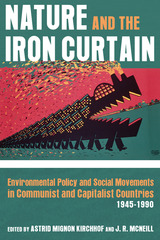
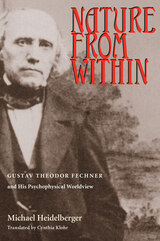
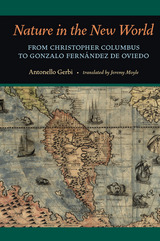
Initial chapters are devoted to the writings of Columbus, Vespucci, Cortés, Verrazzano, and others. The second portion of the book concerns the Historia general y natural de las Indias of Gonzalo Fernández de Oviedo, a work commissioned by Charles V of Spain in 1532 but not published in its entirety until the 1850s. Antonello Gerbi contends that Oviedo, a Spanish administrator who lived in Santo Domingo, has been unjustly neglected as a historian. Gerbi shows that Oviedo was a major authority on the culture, history, and conquest of the New World.

Minnesota’s Twin Cities have long been powerful engines of change. From their origins in the early nineteenth century, the Twin Cities helped drive the dispossession of the region’s Native American peoples, turned their riverfronts into bustling industrial and commercial centers, spread streets and homes outward to the horizon, and reached well beyond their urban confines, setting in motion the environmental transformation of distant hinterlands. As these processes unfolded, residents inscribed their culture into the landscape, complete with all its tensions, disagreements, contradictions, prejudices, and social inequalities. These stories lie at the heart of Nature’s Crossroads. The book features an interdisciplinary team of distinguished scholars who aim to open new conversations about the environmental history of the Twin Cities and Greater Minnesota.
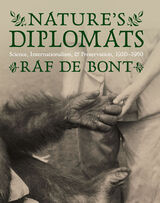
By examining international efforts to protect migratory birds, the threatened European bison, and the mountain gorilla in the interior of the Belgian Congo, Nature’s Diplomats sheds new light on the launch of major international organizations for nature protection in the aftermath of World War II. Additionally, it covers how the rise of ecological science, the advent of the Cold War, and looming decolonization forced a rethinking of approach and rhetoric; and how old ideas and practices lingered on. It provides much-needed historical context for present-day convictions about and approaches to the preservation of species and the conservation of natural resources, the involvement of local communities in conservation projects, the fate of extinct species and vanished habitats, and the management of global nature.

Philadelphia’s place as an early seat of government and major American metropolis has been well documented by leading historians. Now, Nature’s Entrepôt looks particularly to the human impact on this unique urban environment, examining its long history of industrial and infrastructure development, policy changes, environmental consciousness, and sustainability efforts that would come to influence not just this region but also the nation.

In his analysis of the creation, growth, and death of the SOEG, Dietrich Orlow focuses on the institutional behavior and power struggles of this microcosm of the Nazi system. Its story is illustrative of the nature of politics in all totalitarian societies and reveals the aims and the failure of Germany's wartime exploitation of the Balkan resources and the long-term economic designs for the Balkans after the Third Reich's expected victory.
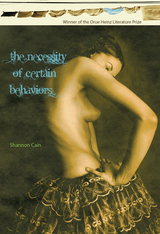
Winner of the 2011 Drue Heinz Literature Prize
Shannon Cain’s stories chart the treacherous territory of the illicit. They expose the absurdity of our rituals, our definitions of sexuality, and above all, our expectations of happiness and self-fulfillment.
Cain’s protagonists are destined to suffer—and sometimes enjoy—the consequences of their own restless discontent. In the title story, Lisa, a city dweller, is dissatisfied with her life and relationships. Her attempt at self-rejuvenation takes her on a hiking excursion through a foreign land. Lisa discovers a remote village where the ritualized and generous bisexual love of its inhabitants entrances her. She begins to abandon thoughts of home.
In “Cultivation,” Frances, a divorced mother strapped with massive credit card debt, has become an expert at growing pot. When she packs her three children and twelve pounds of homegrown into the minivan and travels cross-country to sell the stash, their journey becomes one of anguish, revelation, and ultimately transformation. “Cultivation,” like many of the stories in The Necessity of Certain Behaviors, follows a trail of broken relationships and the unfulfilled promises of modern American life.
Told in precise, evocative prose, these memorable stories illuminate the human condition from a compelling, funny, and entirely original perspective.
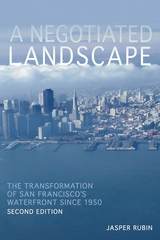
To understand this landscape Jasper Rubin not only explores the built environment but also the major forces that have been at work in its redevelopment. While factors such as new transportation technology and economic restructuring have been essential to the process and character of the waterfront’s transformation, the impact of local, grassroots efforts by planners, activists, and boosters have been equally critical.
The first edition of A Negotiated Landscape won the 2012 prize for best book in planning history from the International Planning History Society. Much has changed in the five years since that edition was published. For this second edition, Rubin provides a new concluding chapter that updates the progress of planning on San Francisco’s waterfront and examines debates over the newest visions for its development.
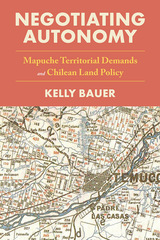

This book explains why some countries succeed in installing democracy after authoritarian rule, and why some of these new democracies make progress toward consolidation. Casper and Taylor show that a democratic government can be installed when elite bargaining during the transition process is relatively smooth. They view elite bargaining in twenty-four transitions cases, some where continued authoritarianism was the result, others where a democratic government was the result, and a third outcome where progress towards consolidation was the end product.
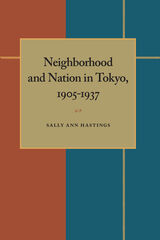
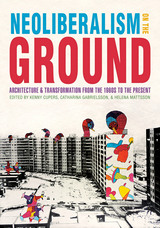

Emanuel’s version of a “new and selected poems” turns convention on its head. She ignores chronology, placing new poems beside old, mixing middle and early poems with recent work, and liberating all her poems from the restraints of their particular histories, both aesthetic and autobiographical. Whether writing in the comedic drag of the cartoon strip, or investigating the Mobius strip relationship between reader and writer, or exposing the humor and hurt that accompany visitations from Frank O’Hara and Gertrude Stein, The Nerve of It both stings and pleases with its intelligence, wit and vivacity. It breaks through, in ways that are bold, sexy, haunting and wry, the die-hard opposition of new and old, personal narrative and linguistic play, sincerity and irony, misery and hilarity. Open the book. Something new is happening here.

Networking Arguments presents an original study on the use and misuse of global institutional rhetoric and the effects of these practices on women, particularly in developing countries. Using a feminist lens, Rebecca Dingo views the complex networks that rhetoric flows through, globally and nationally, and how it’s often reconfigured to work both for and against women and to maintain existing power structures.
To see how rhetorics travel, Dingo deconstructs the central terminology employed by global institutions—mainstreaming, fitness, and empowerment—and shows how their meanings shift depending on the contexts in which they’re used. She studies programs by the World Bank, the United Nations, and the United States, among others, to view the original policies, then follows the trail of their diffusion and manipulation and the ultimate consequences for individuals.
To analyze transnational rhetorical processes, Dingo builds a theoretical framework by employing concepts of transcoding, ideological traffic, and interarticulation to uncover the intricacies of power relationships at work within networks. She also views transnational capitalism, neoliberal economics, and neocolonial ideologies as primary determinants of policy and arguments over women’s roles in the global economy.
Networking Arguments offers a new method of feminist rhetorical analysis that allows for an increased understanding of global gender policies and encourages strategies to counteract the negative effects they can create.

After the collapse of communism in the Soviet Union and eastern Europe, more than a dozen countries undertook aggressive privatization programs. Proponents of economic reform championed such large-scale efforts as the fastest, most reliable way to make the transition from a state-run to a capitalist economy.
The idea was widely embraced, and in the span of a few years, policymakers across the region repeatedly chose an approach that distributed vast amounts of state property to the private sector essentially for free-despite the absence of any historical precedent for such a radical concept. But privatization was not a panacea. It has, instead, become increasingly synonymous with collusion, corruption, and material deprivation.
Why was privatization so popular in the first place, and what went wrong? In answering this question, Hillary Appel breaks with mainstream empirical studies of postcommunist privatization.
By analyzing the design and development of programs in Russia, the Czech Republic, and across eastern Europe, Appel demonstrates how the transformation of property rights in these countries was first and foremost an ideologically driven process. Looking beyond simple economic calculations or pressure from the international community, she argues that privatization was part and parcel of the foundation of the postcommunist state.
A New Capitalist Order reveals that privatization was designed and implemented by pro-market reformers not only to distribute gains and losses to powerful supporters, but also to advance a decidedly Western, liberal vision of the new postcommunist state. Moreover, specific ideologies-such as anticommunism, liberalism, or nationalism, to name but a few-profoundly influenced the legitimacy, the power, and even the material preferences of key economic actors and groups within the privatization process.

Dealing exclusively with developments in modern dance since 1951, this book is for anyone who wishes to understand and experience nonliteral dance: students and teachers, dancers and critics.

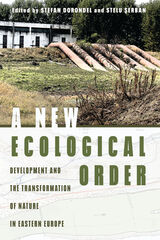
The rise of industrial capitalism in the nineteenth century forged a new ecological order in North American and Western European states, radically transforming the environment through science and technology in the name of human progress. Far less known are the dramatic environmental changes experienced by Eastern Europe, in many ways a terra incognita for environmental historians and anthropologists. A New Ecological Order explores, from a historical and ethnographic perspective, the role of state planners, bureaucrats, and experts—engineers, agricultural engineers, geographers, biologists, foresters, and architects—as agents of change in the natural world of Eastern Europe from 1870 to the early twenty-first century.
Contributors consider territories engulfed by empires, from the Habsburg to the Ottoman to tsarist Russia; territories belonging to disintegrating empires; and countries in the Balkan Peninsula, Central and Eastern Europe, and Eurasia. Together, they follow a rhetoric of “correcting nature,” a desire to exploit the natural environment and put its resources to work for the sake of developing the economies and infrastructures of modern states. They reveal an eagerness among newly established nation-states, after centuries of imperial economic and political impositions, to import scientific knowledge and new technologies from Western Europe that would aid in their economic development, and how those imports and ideas about nature ultimately shaped local projects and policies.
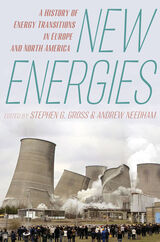

New Natures broadens the dialogue between the disciplines of science and technology studies (STS) and environmental history in hopes of deepening and even transforming understandings of human-nature interactions. The volume presents richly developed historical studies that explicitly engage with key STS theories, offering models for how these theories can help crystallize central lessons from empirical histories, facilitate comparative analysis, and provide a language for complicated historical phenomena. Overall, the collection exemplifies the fruitfulness of cross-disciplinary thinking.
The chapters follow three central themes: ways of knowing, or how knowledge is produced and how this mediates our understanding of the environment; constructions of environmental expertise, showing how expertise is evaluated according to categories, categorization, hierarchies, and the power afforded to expertise; and lastly, an analysis of networks, mobilities, and boundaries, demonstrating how knowledge is both diffused and constrained and what this means for humans and the environment.
Contributors explore these themes by discussing a wide array of topics, including farming, forestry, indigenous land management, ecological science, pollution, trade, energy, and outer space, among others. The epilogue, by the eminent environmental historian Sverker Sörlin, views the deep entanglements of humans and nature in contemporary urbanity and argues we should preserve this relationship in the future. Additionally, the volume looks to extend the valuable conversation between STS and environmental history to wider communities that include policy makers and other stakeholders, as many of the issues raised can inform future courses of action.


The sixteenth century saw an unprecedented growth in the number of educated physicians practicing in German cities. Concentrating on Nuremberg, A New Order of Medicine follows the intertwined careers of municipal physicians as they encountered the challenges of the Reformation city for the first time. Although conservative in their professed Galenism, these men were eclectic in their practices, which ranged from book collecting to botany to subversive anatomical experimentations. Their interests and ambitions lead to local controversy. Over a twenty-year campaign, apothecaries were wrested from their place at the forefront of medical practice, no longer able to innovate remedies, while physicians, recent arrivals in the city, established themselves as the leading authorities. Examining archives, manuscript records, printed texts, and material and visual sources, and considering a wide range of diseases, Hannah Murphy offers the first systematic interpretation of the growth of elite medical “practice,” its relationship to Galenic theory, and the emergence of medical order in the contested world of the German city.


“A great poem of this end of our century. It is masterfully structured in recurring themes and voices which build on and off each other. Gardinier is above all a poet whose language and images are completely integrated so that in Keats's words, every rift is laden with ore. I found this a thrilling poem to read.” --Adrienne Rich
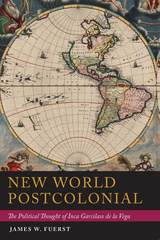
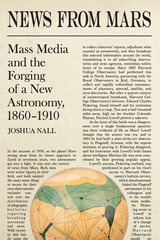
Mass media in the late nineteenth century was full of news from Mars. In the wake of Giovanni Schiaparelli’s 1877 discovery of enigmatic dark, straight lines on the red planet, astronomers and the public at large vigorously debated the possibility that it might be inhabited. As rivalling scientific practitioners looked to marshal allies and sway public opinion—through newspapers, periodicals, popular books, exhibitions, and encyclopaedias—they exposed disagreements over how the discipline of astronomy should be organized and how it should establish acceptable conventions of discourse.
News from Mars provides a new account of this extraordinary episode in the history of astronomy, revealing how major transformations in astronomical practice across Britain and America were inextricably tied up with popular scientific culture and a transatlantic news economy that enabled knowledge to travel. As Joshua Nall argues, astronomers were journalists, too, eliding practice with communication in consequential ways. As writers and editors, they played a pivotal role in the emergence of a “new astronomy” dedicated to the study of the physical constitution and life history of celestial objects, blurring harsh distinctions between those who produced esoteric knowledge and those who disseminated it.
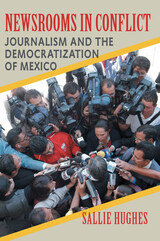
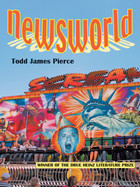
News is “one of the few things that connects us as a nation” observes the protagonist in the title story of Newsworld, a new collection by Todd James Pierce that explores America’s obsession with news and entertainment culture. The characters in “Newsworld” seek to design realistic theme park attractions, such “OJ’s Bronco: The Ride” and “Seige at Waco,” that allow park guests to experience the complexities of contemporary news events for themselves. In the story “Columbine: The Musical,” high school students stage a musical written as a means of discussing school violence, while their vice principal wrangles a 10 percent discount on a school security system in exchange for corporate sponsorship of the play. In “Wrestling Al Gore,” a national wrestling federation uses costumed wrestlers to cast the Gore/Bush election recount into the ring. In an ironic twist, fans become sympathetic to the underdog Gore, champion his cause, and ultimately reflect on the fate of the real politician. In “The Yoshi Compound: A Story of Post-Waco Texas,” the followers of the Dalai Yoshi amass weapons and riot gear in hopes of attracting media attention in order to spread their message of love and world peace.
The characters in Newsworld, like many Americans, are engulfed in a life-imitating-art phenomenon caused by the hyperreality presented in the media, and they struggle with this overwhelming influence trying to understand whether their own lives fall within or outside its domain.

Russian painter, explorer, and mystic Nicholas Roerich (1874–1947) ranks as one of the twentieth century’s great enigmas. Despite mystery and scandal, he left a deep, if understudied, cultural imprint on Russia, Europe, India, and America. As a painter and set designer Roerich was a key figure in Russian art. He became a major player in Diaghilev’s Ballets Russes, and with Igor Stravinsky he cocreated The Rite of Spring, a landmark work in the emergence of artistic modernity. His art, his adventures, and his peace activism earned the friendship and admiration of such diverse luminaries as Albert Einstein, Eleanor Roosevelt, H. G. Wells, Jawaharlal Nehru, Raisa Gorbacheva, and H. P. Lovecraft.
But the artist also had a darker side. Stravinsky once said of Roerich that “he ought to have been a mystic or a spy.” He was certainly the former and close enough to the latter to blur any distinction. His travels to Asia, supposedly motivated by artistic interests and archaeological research, were in fact covert attempts to create a pan-Buddhist state encompassing Siberia, Mongolia, and Tibet. His activities in America touched Franklin Delano Roosevelt’s cabinet with scandal and, behind the scenes, affected the course of three US presidential elections.
In his lifetime, Roerich baffled foreign affairs ministries and intelligence services in half a dozen countries. He persuaded thousands that he was a humanitarian and divinely inspired thinker—but convinced just as many that he was a fraud or a madman. His story reads like an epic work of fiction and is all the more remarkable for being true. John McCannon’s engaging and scrupulously researched narrative moves beyond traditional perceptions of Roerich as a saint or a villain to show that he was, in many ways, both in equal measure.
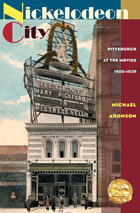
Nickelodeon City provides a detailed view inside the city's early film trade, with insights into the politics and business dealings of the burgeoning industry. Drawing from the pages of the Pittsburgh Moving Picture Bulletin, the first known regional trade journal for the movie business, Michael Aronson profiles the major promoters in Pittsburgh, as well as many lesser-known ordinary theater owners, suppliers, and patrons. He examines early film promotion, distribution, and exhibition, and reveals the earliest forms of state censorship and the ensuing political lobbying and manipulation attempted by members of the movie trade. Aronson also explores the emergence of local exhibitor-based cinema, in which the exhibitor assumed control of the content and production of film, blurring the lines between production, consumption, and local and mass media.
Nickelodeon City offers a fascinating and intimate view of a city and the socioeconomic factors that allowed an infant film industry to blossom, as well as the unique cultural fabric and neighborhood ties that kept nickelodeons prospering even after Hollywood took the industry by storm.


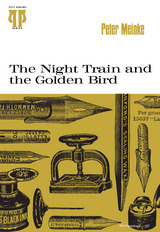

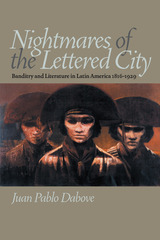
Nightmares of the Lettered City presents an original study of the popular theme of banditry in works of literature, essays, poetry, and drama, and banditry's pivotal role during the conceptualization and formation of the Latin American nation-state.
Juan Pablo Dabove examines writings over a broad time period, from the early nineteenth century to the 1920s, and while Nightmares of the Lettered City focuses on four crucial countries (Argentina, Mexico, Brazil, and Venezuela), it is the first book to address the depiction of banditry in Latin America as a whole. The work offers close reading of Facundo, Doña Bárbara, Os Sertões, and Martín Fierro, among other works, illuminating the ever-changing and often contradictory political agendas of the literary elite in their portrayals of the forms of peasant insurgency labeled “banditry.”
Banditry has haunted the Latin American literary imagination. As a cultural trope, banditry has always been an uneasy compromise between desire and anxiety (a “nightmare”), and Dabove isolates three main representational strategies. He analyzes the bandit as radical other, a figure through which the elites depicted the threats posed to them by various sectors outside the lettered city. Further, he considers the bandit as a trope used in elite internecine struggles. In this case, rural insurgency was a means to legitimize or refute an opposing sector or faction within the lettered city. Finally, Dabove shows how, in certain cases, the bandit was used as an image of the nonstate violence that the nation state has to suppress as a historical force and simultaneously exalt as a memory in order to achieve cultural coherence and actual sovereignty.
As Dabove convincingly demonstrates, the elite's construction of the bandit is essential to our understanding of the development of the Latin American nation in the nineteenth and early twentieth centuries.

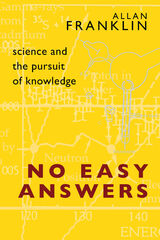
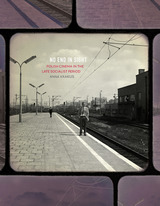
In analyzing films by Andrzej Wajda, Krzysztof Kieslowsi, Krzysztof Zanussi, Wojciech Has, and Tadeusz Konwicki alongside Konwicki’s literary production, Anna Krakus identifies their shared penchant to defer or completely eschew narrative closure, whether in plot, theme, or style. Krakus calls this artistic tendency "aesthetic unfinalizability." As she reveals, aesthetic unfinalizability was far more than an occasional artistic preference or a passing trend; it was a radical counterpolitical act. The obsession with historical teleology saturated Polish public life during socialism to such a degree that instances of nonclosure or ambivalent endings emerged as polemical responses to official ideology.

Alicia Suskin Ostriker's voice has long been acknowledged as a major force in American poetry. In No Heaven, her eleventh collection, she takes a hint from John Lennon's "Imagine" to wrestle with the world as it is: "no hell below us, / above us only sky."
It is a world of cities, including New York, London, Jerusalem, and Berlin, where the poet can celebrate pickup basketball, peace marches, and the energy of graffiti. It is also a world of families, generations coming and going, of love, love affairs, and friendship. Then it is a world full of art and music, of Rembrandt and Bonnard, Mozart and Brahms. Finally, it is a world haunted by violence and war. <I>No Heaven</I> rises to a climax with elegies for Yitzhak Rabin, assassinated by an Israeli zealot, and for the poet's mother, whose death is experienced in the context of a post-9/11 impulse to destroy that seems to seduce whole nations.
Yet Ostriker's ultimate stance is to "Try to praise the mutilated world," as the poet Adam Zagajewski has counseled. At times lyric, at times satiric, Ostriker steadfastly pursuesin No Heaven her poetics of ardor, a passion for the here and now that has chastened and consoled her many devoted readers.


—Major Jackson


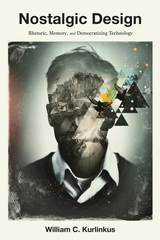
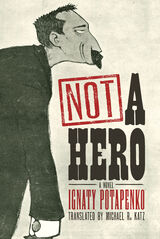
Between 1890 and 1893, Ignaty Potapenko published a number of works in which he presented the Russian intelligentsia with a new role model, the “mediocre, but common-sensical man,” whose diligence and steady devotion to the improvement of society are depicted as being more productive than the reckless heroism of the regime’s most outspoken, and sometimes violent, intellectual opponents. Not a Hero introduces the twenty-first-century reader to an important debate of the prerevolutionary period, a debate that is still relevant today: how to bring about social change within an oppressive and ossified political system without resorting to violence.
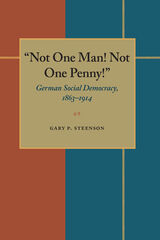

Moving with quantum ease through the porous membranes of the past, present, and future, the speaker wonders: What is each moment but the swirling confluence (or shy first meeting) of past and future—of what happened, and what-has-not-yet-happened but will?
Such phenomenological questions are sparked by ordinary events: a friend's passion for jigsaw puzzles; an imagined conversation with a neighbor's dog; a meditation on the uses of modern poetry. Here, in language at once elegant and agile, intimate and universal, the author probes beneath the surface of happenstance, moving with depth, humor, and compassion into the heart of our shared predicament: that of loving what we cannot keep.
But if time in these poems is relative, it bends toward grace—even, as the title suggests, towards consolation. Taken together, the poems invite us to raise a glass to the way we're each "held light and golden in Time's mouth," and to savor something of the eternal—distilled, sparkling, already lost—inside every now.
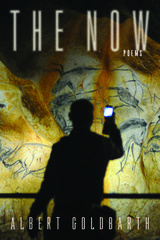
Between poems that consider the disappearance of language in an age of digital/binary communication, and poems that mourn the disappearance of fellow poets and artists, this collection attempts to stand on a nano-second that looks both backward and forward in time: the ever-shifting "now."
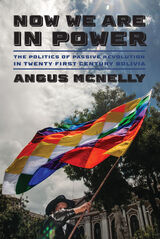

Poised on the precipice of mystery and longing, each character in Now You Know It All also hovers on the brink of discovery—and decision. Set in small-town North Carolina, or featuring eager Southerners venturing afar, these stories capture the crucial moment of irrevocable change. A young waitress accepts an offer from a beguiling stranger; a troubled boy attempts to unleash the villain from an internet hoax on his party guests; a smitten student finds more than she bargained for in her favorite teacher’s attic; two adult sisters reconvene to uncover a family secret hidden in plain sight. With a sharp eye for rendering inner life, Joanna Pearson has a knack for creating both compassion and a looming sense of threat. Her stories peel back the layers of the narratives we tell ourselves in an attempt to understand the world, revealing that the ghosts haunting us are often the very shadows that we cast.
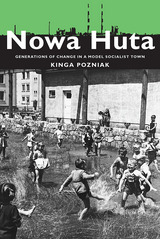
Kinga Pozniak shows how the remarkable political, economic, and social upheavals since the end of the Second World War have profoundly shaped the historical memory of these events in the minds of the people who lived through them. Through extensive interviews, she finds three distinct, generationally based framings of the past. Those who built the town recall the might of local industry and plentiful jobs. The following generation experienced the uprisings of the 1980s and remembers the repression and dysfunction of the socialist system and their resistance to it. Today’s generation has no direct experience with either socialism or Solidarity, yet as residents of Nowa Huta they suffer the stigma of lower-class stereotyping and marginalization from other Poles.
Pozniak examines the factors that lead to the rewriting of history and the formation of memory, and the use of history to sustain current political and economic agendas. She finds that despite attempts to create a single, hegemonic vision of the past and a path for the future, these discourses are always contested—a dynamic that, for the residents of Nowa Huta, allows them to adapt as their personal experience tells them.
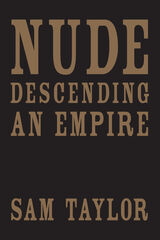
READERS
Browse our collection.
PUBLISHERS
See BiblioVault's publisher services.
STUDENT SERVICES
Files for college accessibility offices.
UChicago Accessibility Resources
home | accessibility | search | about | contact us
BiblioVault ® 2001 - 2024
The University of Chicago Press








